The West Country Fly Fishing Seminar 2017
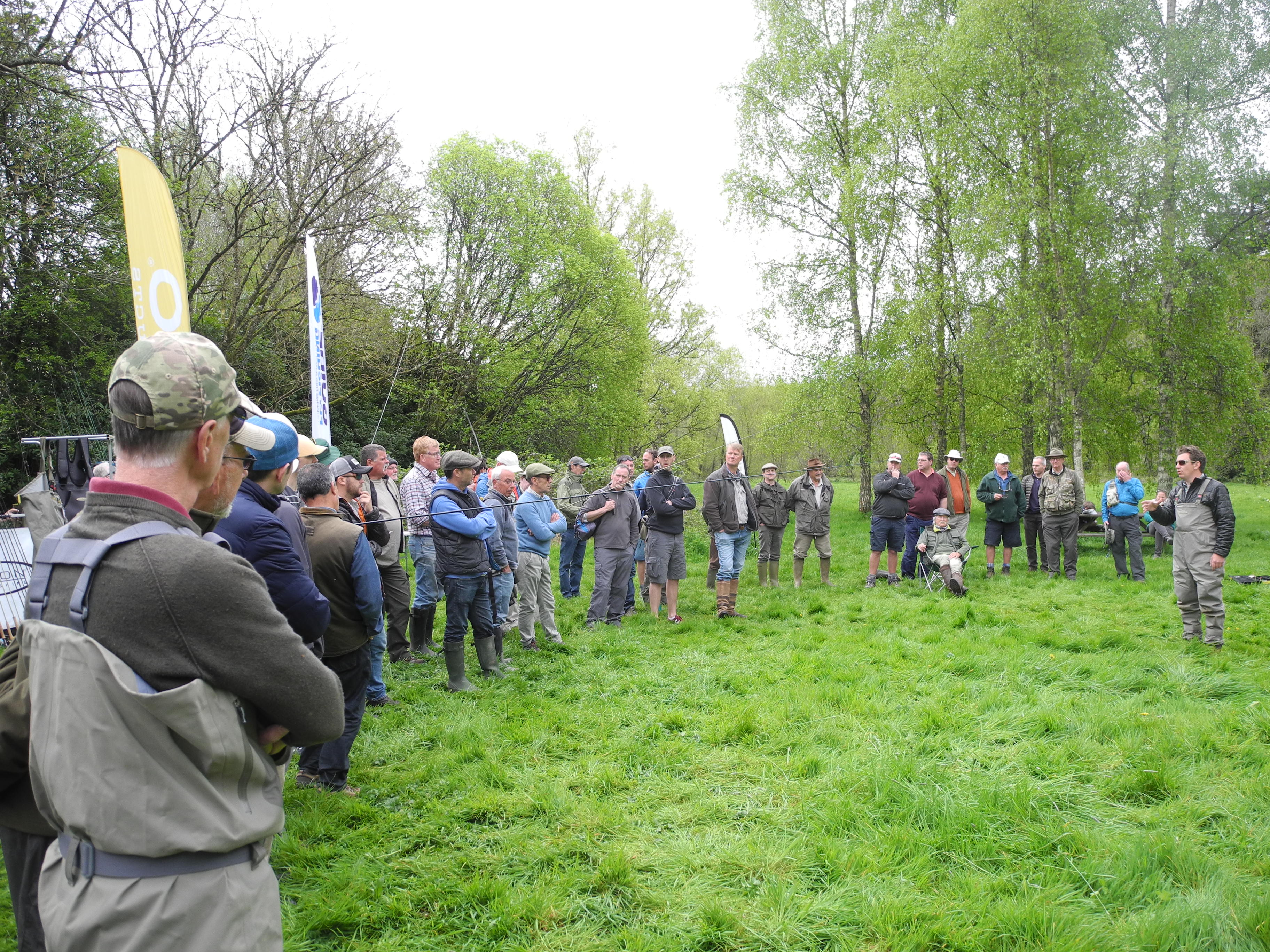
Close to seventy fly fishers from novice to expert assembled at the Fox and Hounds, Eggesford for the annual West Country fly fishing seminar all keen to learn more about the art of fly fishing. Fortunately it was a warm spring day with new growth bursting forth on the trees and recently arrived swallows swooping around the old fishing and hunting hotel.
The event is hosted in a collaboration between the Devon School of Fly Fishing and Fly Fishing Tackle.co.uk who are based locally in Crediton. There were a team of expert guides from all over the country to assist in the delivery of talks, demonstrations with tuition on casting, watercraft, fly selection and a whole lot more relating to fly-fishing.
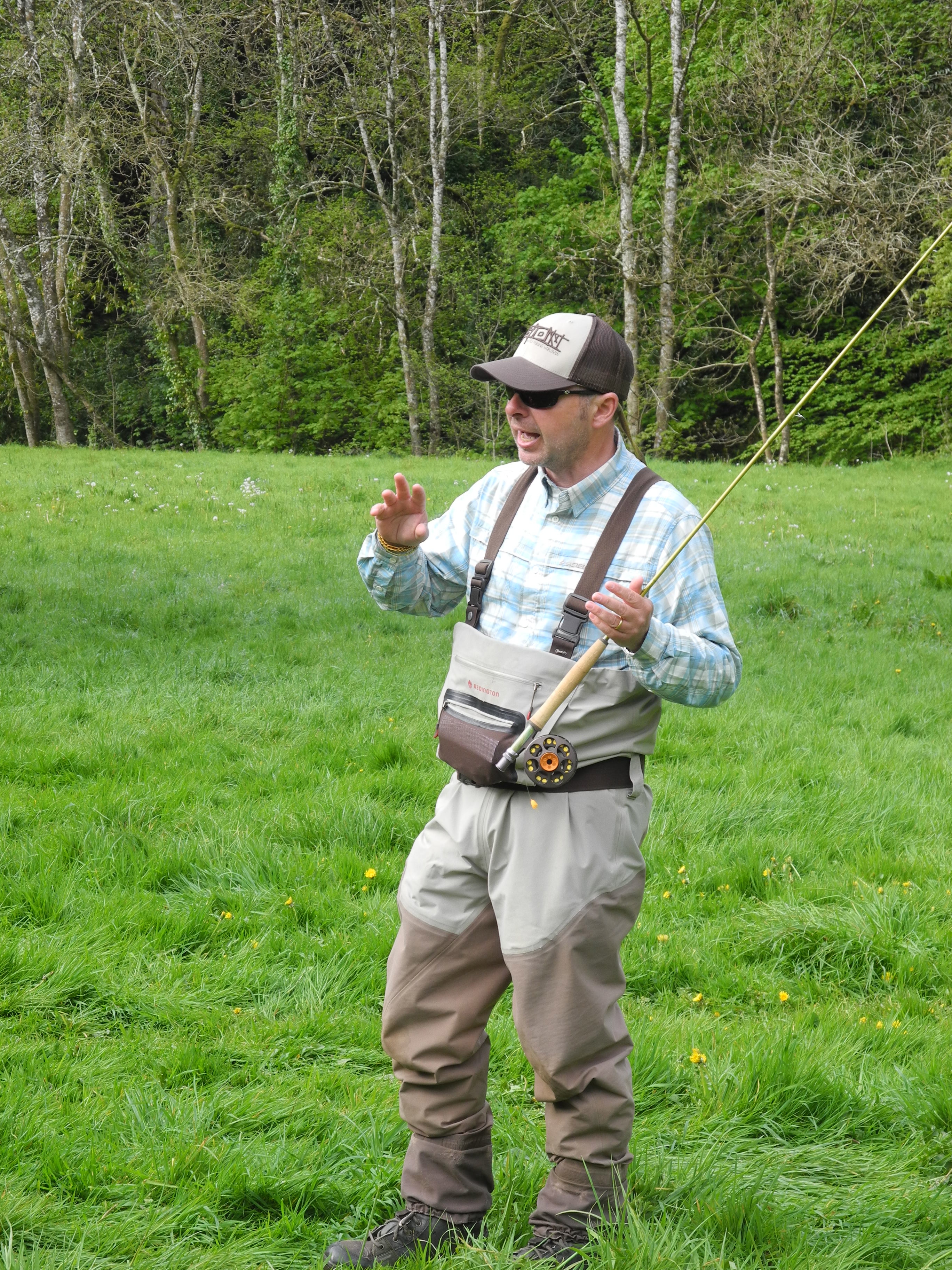
The morning commenced in the meadows beside the Upper Taw where Peter Tyjas (Above) opened proceedings with an informative talk on the event and aspects of fly-fishing including tackle and his undoubted passion for casting a fly in various waters; especially for the wild brown trout that swim in the Upper Taw.
The guides present included:-
Jim Williams
AAPGAI MASTER level fly fishing & fly casting instructor, Sales manager for Vision Flyfishing UK
Jim Fearn
AAPGAI qualified salmon casting instructor and Rio Pro-Guide. He is responsible for product development at Guide Flyfishing who distribute RIO Lines, McLean Nets, Redington, Fishpond, Loon
John Legg
Managing Director at Guide Fly Fishing and AAPGAI level instructor.
Pete Tyjas
AAPGAI qualified instructor and principal of the Devon School of Fly Fishing, together with his team of fully qualified guides.
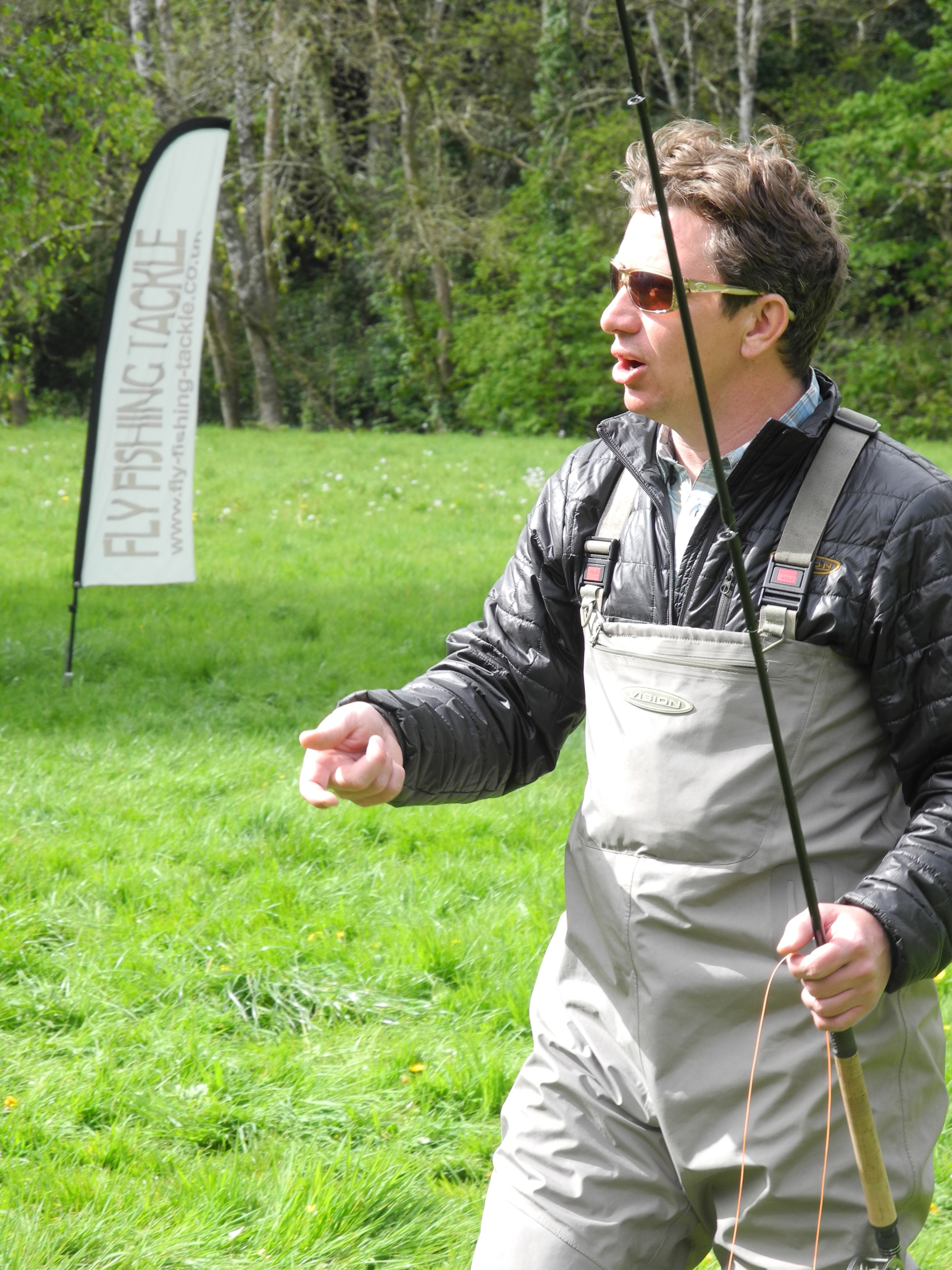
During the morning session each of the instructors gave a talk on their area of expertise with casting demonstrations that included in depth advice on spey casting, double haul timing, casting the perfect loop and the need for practice.
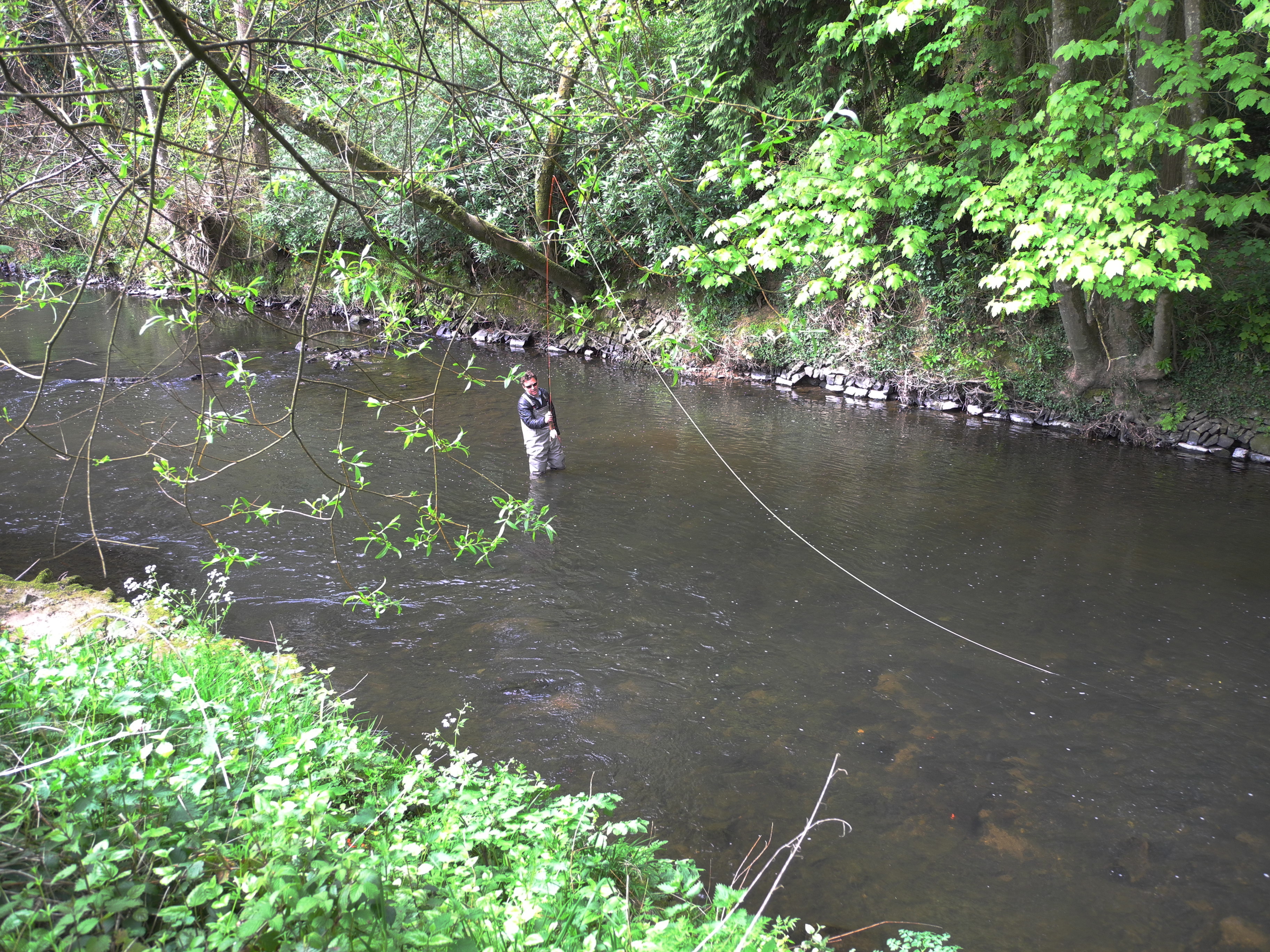
After these extensive and fascinating displays and talks the anglers were encouraged to assemble into relevant groups where they could receive relevant tuition dependent upon their knowledge or avenue of interest. There was also the opportunity to handle and cast the latest fly rods with lines and reels.
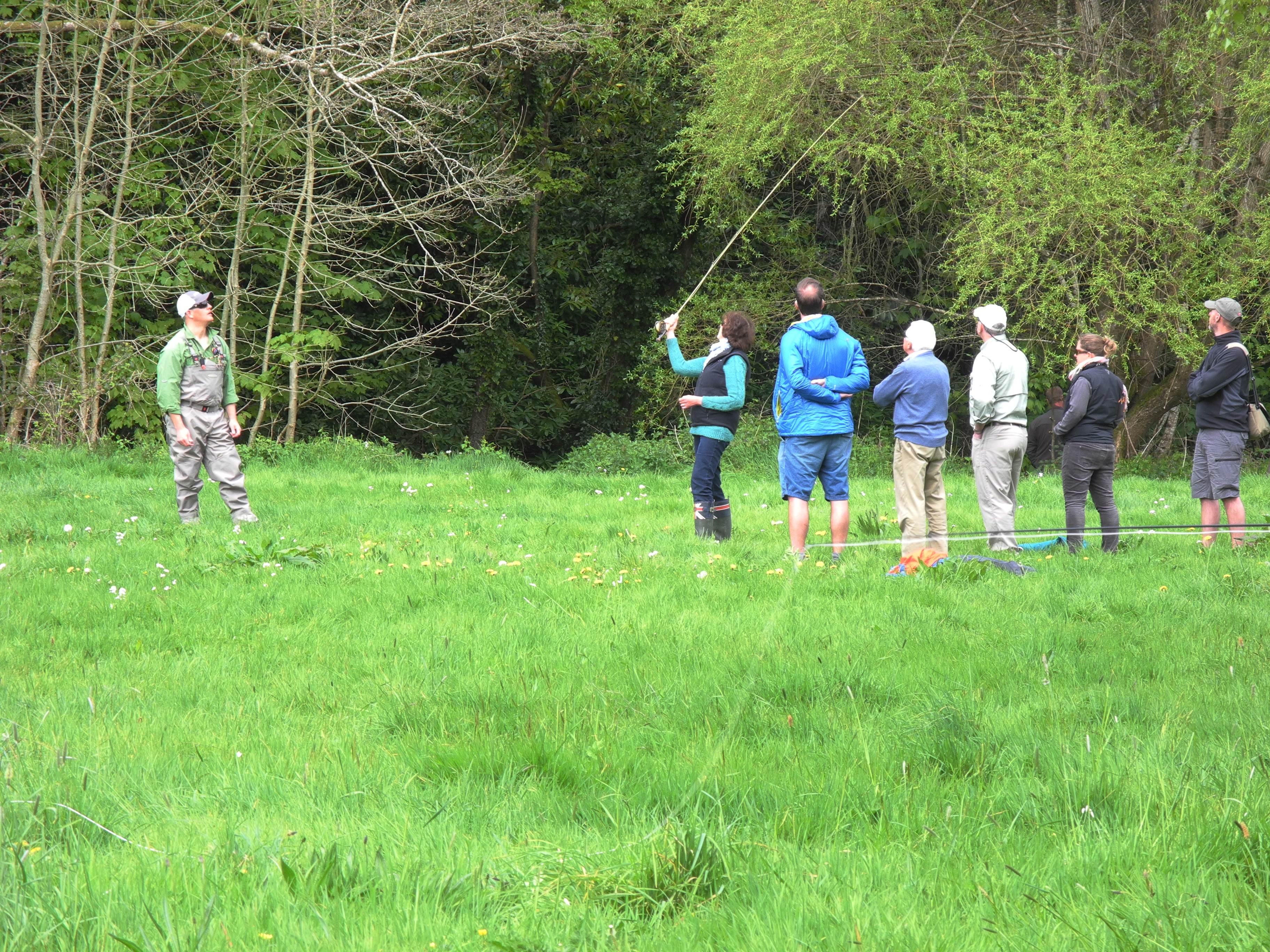
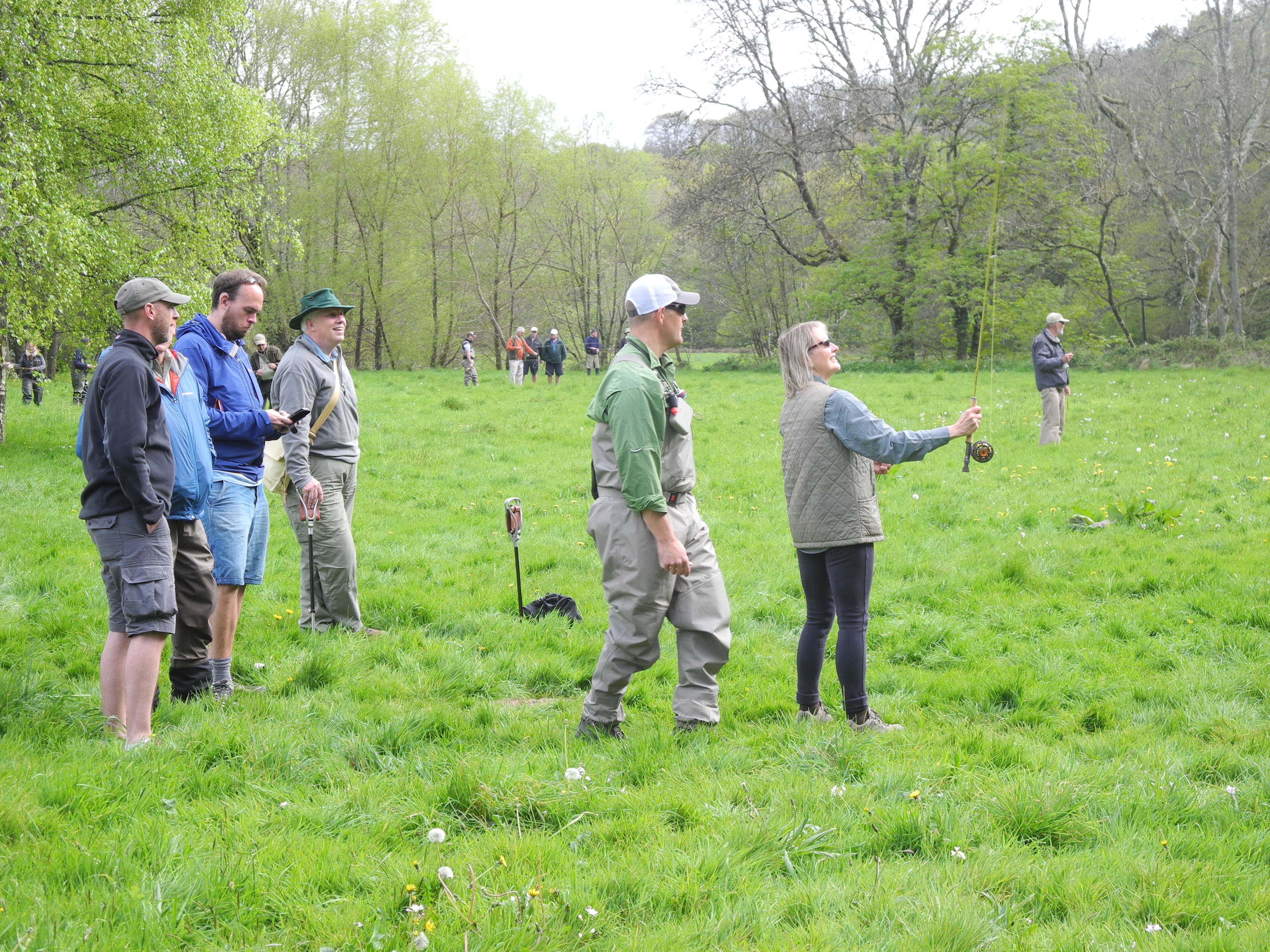
Lunch time gave the opportunity to mix and mingle in the dining area of the hotel and to have a drink in the bar where hundreds of old photos of salmon catches of bygone days decorate the walls.
After lunch it was back to the meadow where at this point the guides got into the river to talk about watercraft and the wide range of techniques available to the fly-fisher. Dry fly fishing, New Zealand style presentation, czech nymphing and American style streamer fishing. Whatever style you choose observation of the waterside environment is vital with weather, water condition, temperature and light values likely to impact upon the food available to the fish we seek. In addition to this watercraft is valuable in providing an educated guess as to where the fish are likely to be. All the above factors will influence the tackle required. Though in reality it is impractical to carry all the rods and reels required for each technique and presentation compromise is therefore required for most of us.
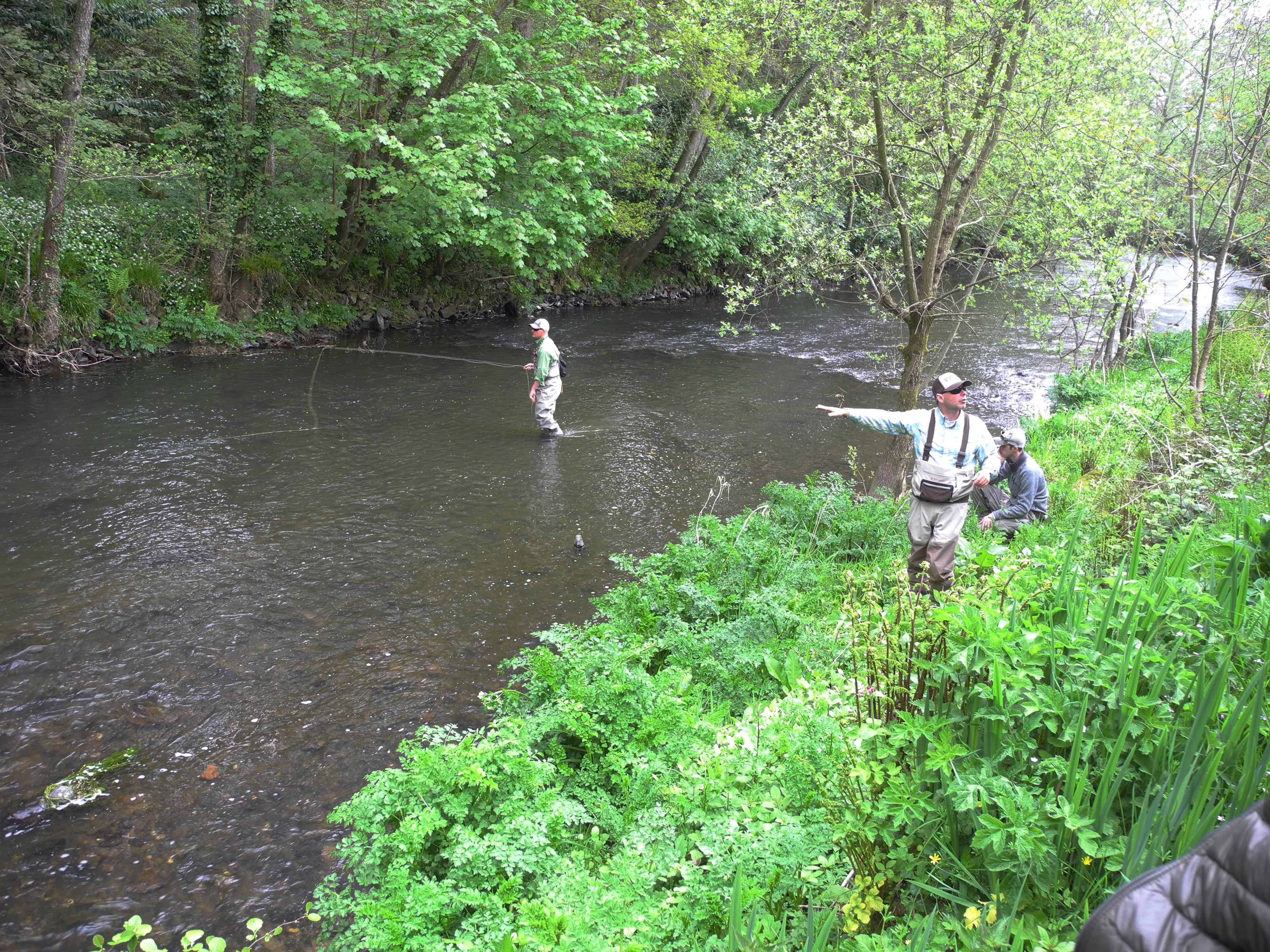
The choice of fly or lure is of course important but the need for a vast range is generally not required as presentation and positioning are of more value. The importance of the leader is also an important but often overlooked component in the link to presenting the fly correctly. Tapered leaders aid good presentation with a stiff butt leading to a fine tippet via the middle transition section. One of the key factors in dry fly presentation is of course ensuring a drag free drift.
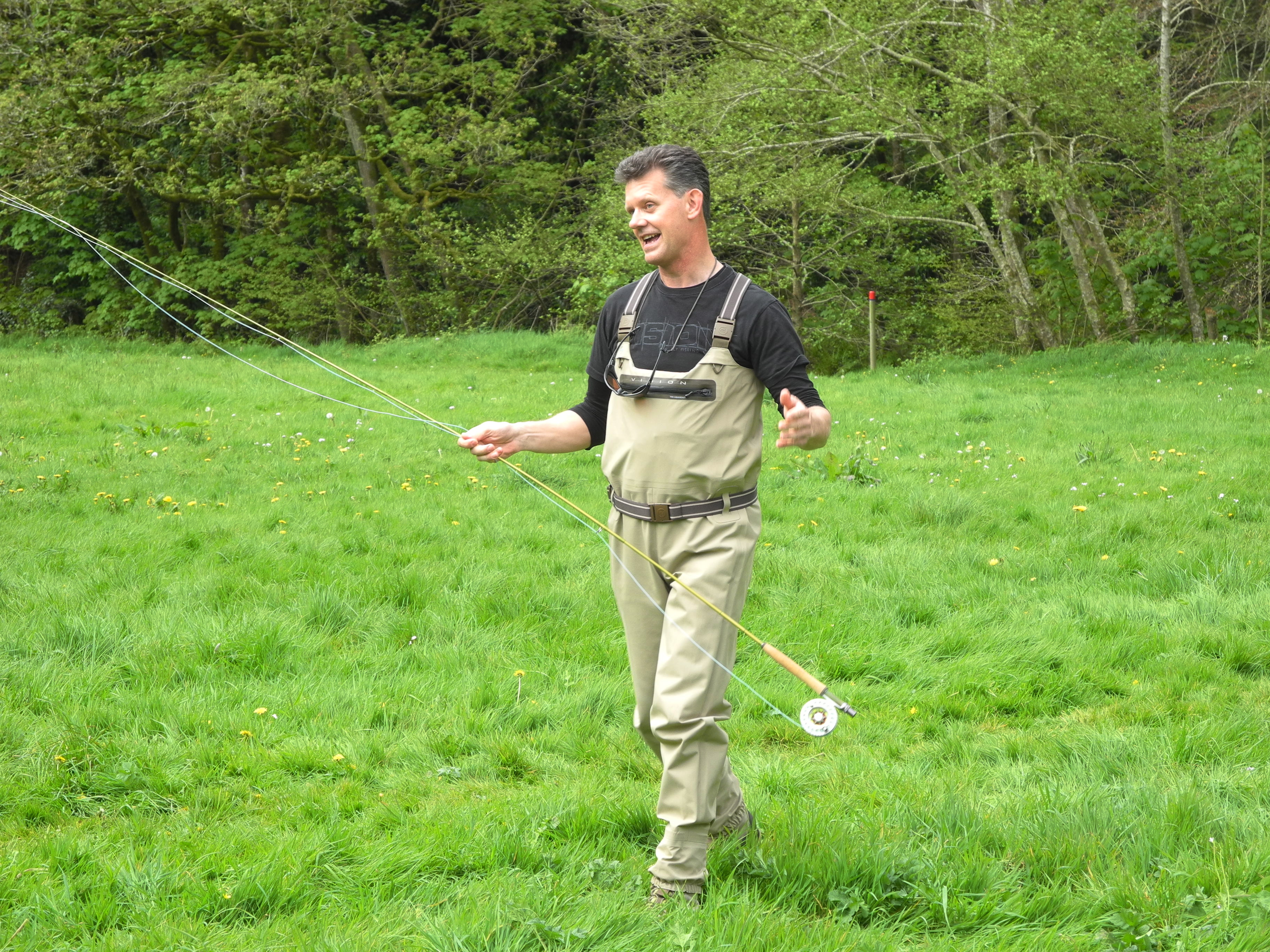
The guide giving my wife Pauline tuition told us that the key areas to consider when fishing for trout are: –
Presence – Not alerting the fish to your presence
Presentation – Presenting the fly in a natural manner
Pattern – Choosing the correct imitation on the day
By the end of the day we had been given a huge amount of information and thought provoking ideas. Success in angling is undoubtedly boosted by attention to detail and the best anglers fine tune their tactics to suit the fish they seek, I realized that despite being an angler for over fifty years I know very little about the sport I love. Being an all-rounder I must concede that I will never be an expert in any discipline of angling if such a thing exists. In angling it is the fish that write the rule-book and the only certainty within that book is that fish don’t always follow the rules.
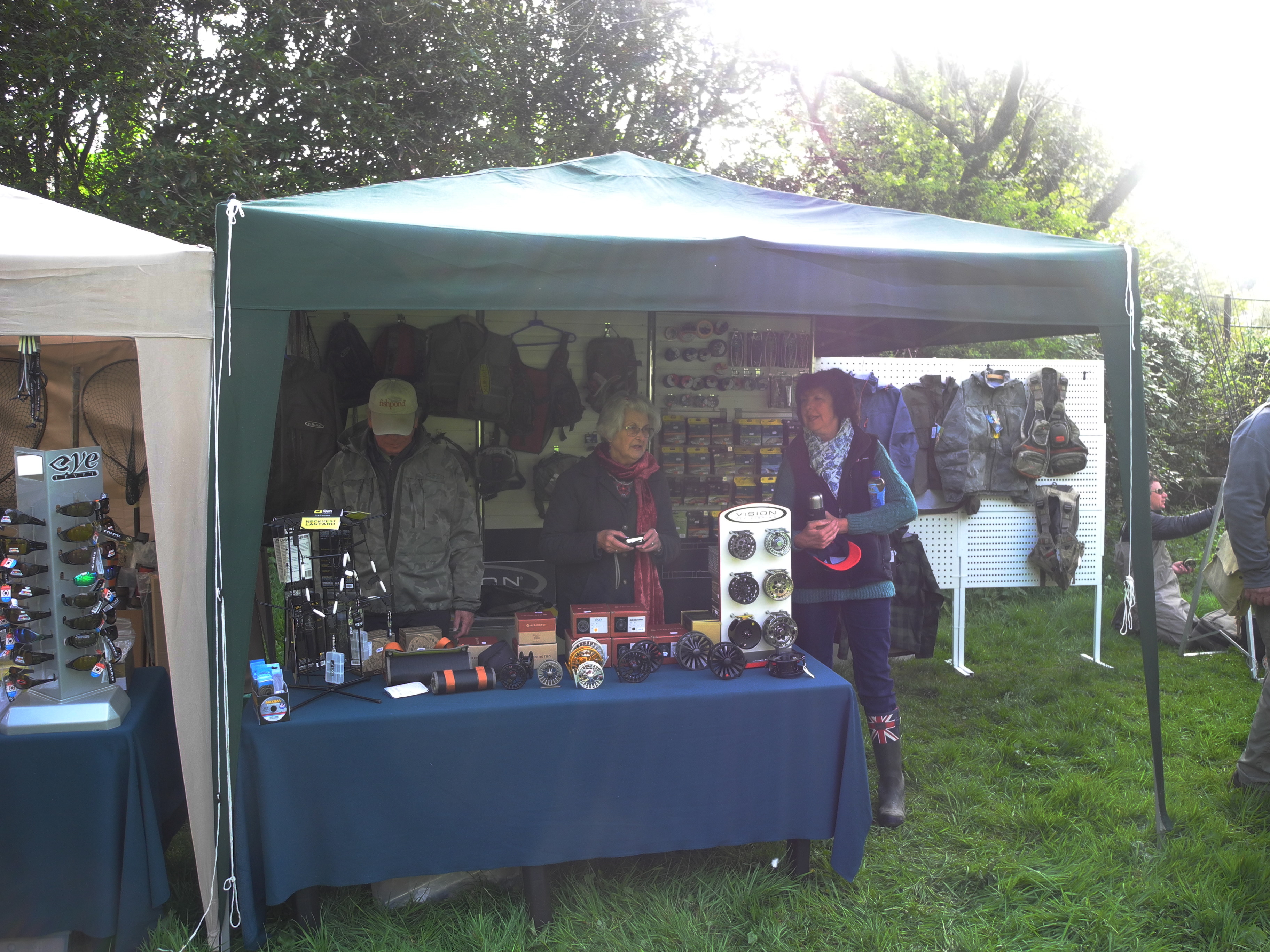
Fortunately we have a vast range of waters in North Devon to practice on and I look forward to casting a line far and wide this coming year. Hopefully with her recent tuition Pauline will also connect with the wild fish that swim in river, stream, lake and sea.


